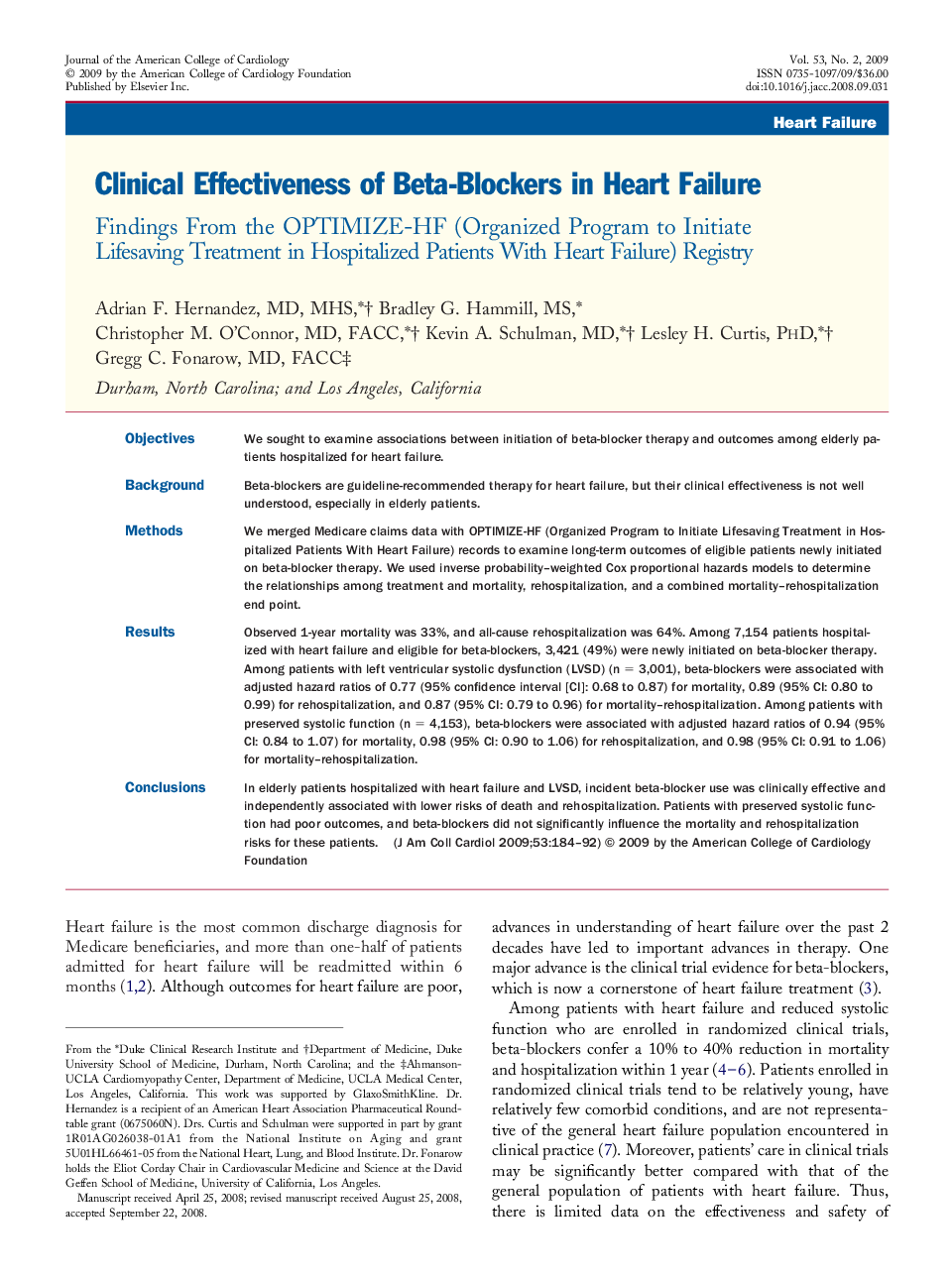| کد مقاله | کد نشریه | سال انتشار | مقاله انگلیسی | نسخه تمام متن |
|---|---|---|---|---|
| 2952076 | 1577389 | 2009 | 9 صفحه PDF | دانلود رایگان |

ObjectivesWe sought to examine associations between initiation of beta-blocker therapy and outcomes among elderly patients hospitalized for heart failure.BackgroundBeta-blockers are guideline-recommended therapy for heart failure, but their clinical effectiveness is not well understood, especially in elderly patients.MethodsWe merged Medicare claims data with OPTIMIZE-HF (Organized Program to Initiate Lifesaving Treatment in Hospitalized Patients With Heart Failure) records to examine long-term outcomes of eligible patients newly initiated on beta-blocker therapy. We used inverse probability–weighted Cox proportional hazards models to determine the relationships among treatment and mortality, rehospitalization, and a combined mortality–rehospitalization end point.ResultsObserved 1-year mortality was 33%, and all-cause rehospitalization was 64%. Among 7,154 patients hospitalized with heart failure and eligible for beta-blockers, 3,421 (49%) were newly initiated on beta-blocker therapy. Among patients with left ventricular systolic dysfunction (LVSD) (n = 3,001), beta-blockers were associated with adjusted hazard ratios of 0.77 (95% confidence interval [CI]: 0.68 to 0.87) for mortality, 0.89 (95% CI: 0.80 to 0.99) for rehospitalization, and 0.87 (95% CI: 0.79 to 0.96) for mortality–rehospitalization. Among patients with preserved systolic function (n = 4,153), beta-blockers were associated with adjusted hazard ratios of 0.94 (95% CI: 0.84 to 1.07) for mortality, 0.98 (95% CI: 0.90 to 1.06) for rehospitalization, and 0.98 (95% CI: 0.91 to 1.06) for mortality–rehospitalization.ConclusionsIn elderly patients hospitalized with heart failure and LVSD, incident beta-blocker use was clinically effective and independently associated with lower risks of death and rehospitalization. Patients with preserved systolic function had poor outcomes, and beta-blockers did not significantly influence the mortality and rehospitalization risks for these patients.
Journal: Journal of the American College of Cardiology - Volume 53, Issue 2, 13 January 2009, Pages 184–192